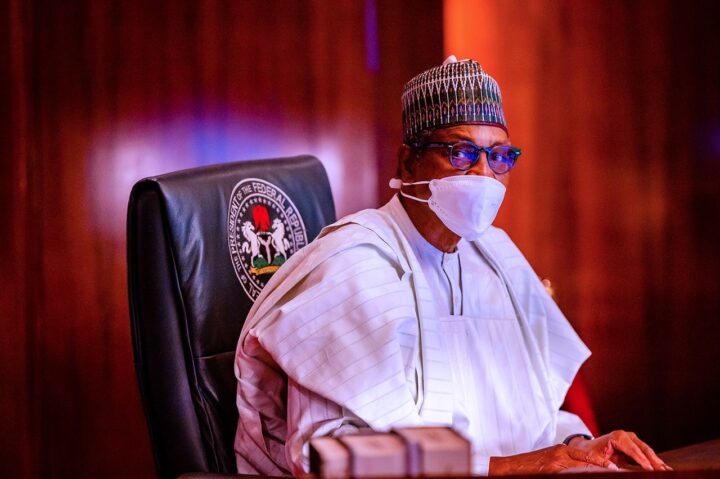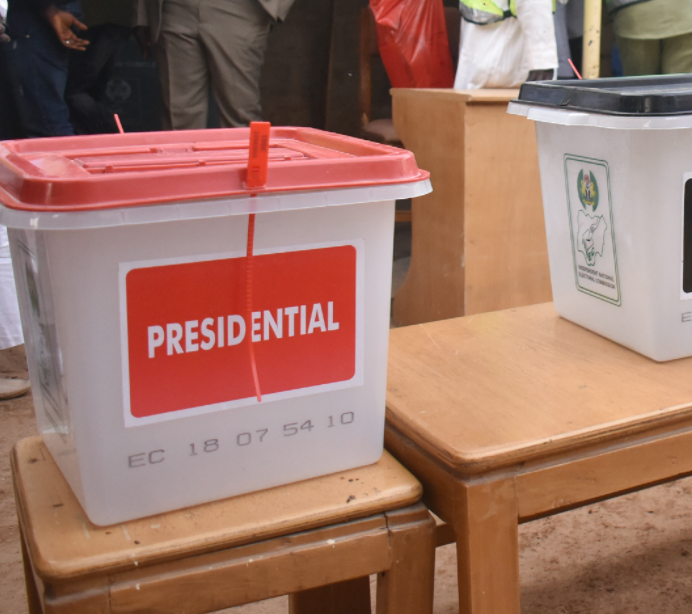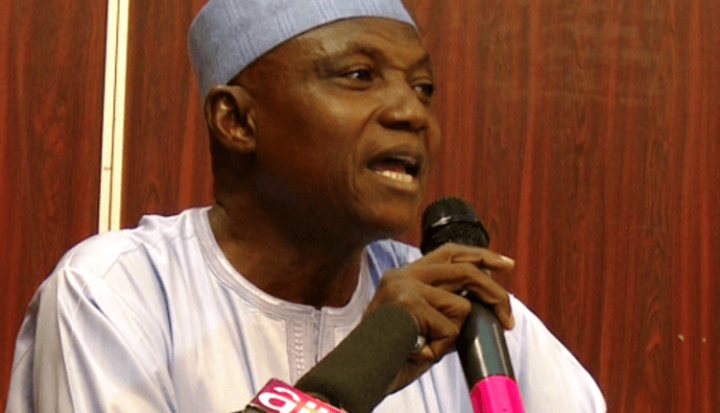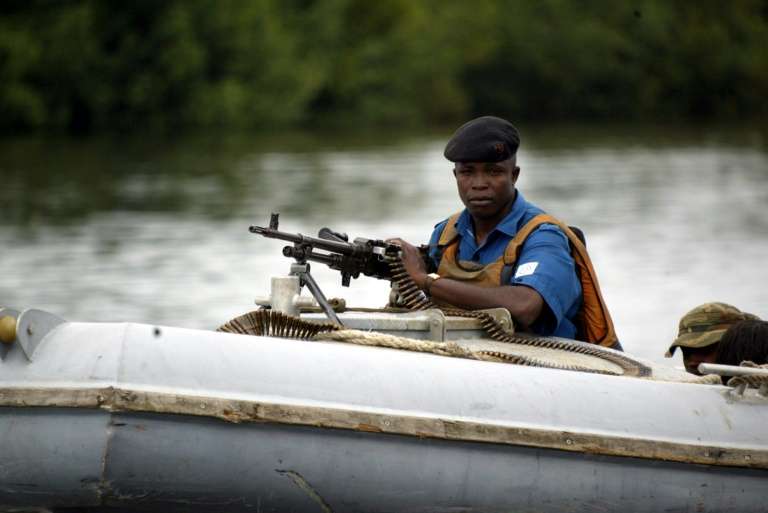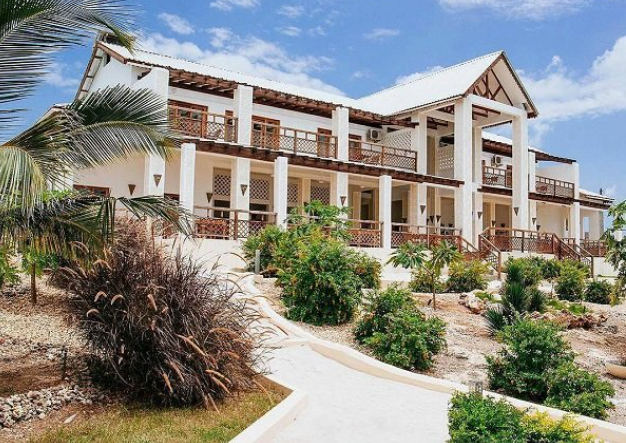Here we go again. On Tuesday, the Northern Elders Forum (NEF) issued a statement asking President Muhammadu Buhari to “seriously consider” resigning over the pervasive insecurity in the land. Several parts of the north have been experiencing devastating terror attacks, communal killings and kidnappings. The Indigenous People of Biafra (IPOB) has resumed its campaign of terror “to liberate Nd’Igbo from the Nigerian zoo” while the middle belt is still in the grip of massacres. “We cannot continue to live and die under the dictates of killers, kidnappers, rapists and sundry criminal groups that have deprived us of our rights to live in peace and security,” NEF said in its press release.
The response? “The Presidency does not wish to be drawn into the high-decibel show in the media, taking the nation by the storm from the Northern Elders Forum. Publicity is the oxygen for politicians who have failed to connect with voters in a democracy,” a presidential spokesman said in a press statement. “It is enough to say from our part, that resignation call on the President is not a solution to the security problems facing the country, something that has built up to a worrisome level following decades of neglect… People don’t have to destroy what is there in a desperate quest to get power.” High-decibel show in the media? Security problems from decades of neglect? Wonderful.
Flashback. In November, 2014, Alhaji Lai Mohammed, then spokesman for the All Progressives Congress (APC), asked President Goodluck Jonathan to resign. “Under Jonathan’s watch,” he said, “Nigerian territories are being annexed progressively by insurgents, and all that he has demonstrated so far is sheer cluelessness and incompetence. It is time for him to take responsibility and quit in the national interest, to pave the way for a leader who can lead the country to victory.” As information minister, the same Lai Mohammed viciously described calls on Buhari to resign over the Zabarmari massacre of 2020 as “playing dirty politics”, “cheap” and “irresponsible”.
Caveat. To be sure, it was not as if APC’s campaign to vote the PDP out of power in 2015 was because the Jonathan-led administration had turned Nigeria into a fortress. It was not as if Nigerians were safe and secure. Under Jonathan — lest we forget — Boko Haram bombed Abuja six times. In July 2013, they killed 42 students and teachers at a secondary school in Mamudo, Yobe state. They killed 58 schoolboys in Buni Yadi, also in Yobe, in February 2014. They kidnapped hundreds of Chibok schoolgirls. Bombings in Kano and Kaduna killed at least 400. In Zamfara, bandits killed 43 in Kizara village in June 2013 and 79 in Galadima village in April 2014. Just trying to refresh our memory.
Advertisement
But you know why some of us cannot stand the type of politics we play in Nigeria? It’s the hypocrisy for me. When APC weaponised the insecurity to oust Jonathan from power, they did not talk about “decades of neglect”. All we were told was that Jonathan was incompetent and that an APC government would keep Nigerians safe. Insecurity was one of the things APC deftly used to sell its stock. If the 2015 presidential poll had not been moved by six weeks apparently to allow Jonathan regain lost ground, he would have lost to Buhari by a gap of 10 million votes rather than the eventual 2.5 million. And I am quoting estimates from Jonathan’s camp in January 2015.
Pause. Nearly seven years of APC in power and what do we have? While Boko Haram is not the force it used to be in the north-east, the north-west has become the new epicentre of insecurity. Thousands have been killed or kidnapped in Kaduna, Zamfara, Kebbi, Sokoto and Katsina states. Niger has been fully sucked in. Plateau killings have not stopped. Benue remains a killing centre. Taraba is coming back into the gory picture. IPOB and Eastern Security Network (ESN) have made parts of the south-east a living hell. The south-west dodged a bullet when Sunday Igboho, the Yoruba militia leader, fled the country, but clashes between herders and farmers are still not over.
The PDP is now borrowing from APC’s manual. At every turn of killings and kidnappings, they rush out a press statement describing Nigeria as “unsafe”, tagging the APC government as “incompetent” and asking Buhari to resign. Their latest: “This government would be coming every day to apologise to Nigerians to say ‘we’re sorry for what we’ve done.’ But this is a government that is arrogant in failure. They’ve failed and they are still arrogant about it. They should bury their head in shame. So, because insecurity predates the APC government, does it mean because they are incompetent and rudderless and completely clueless about the issues, we should accept it?” Classic tit-for-tat.
Advertisement
And here is the tragedy of it all: many Nigerians easily get fooled by the political gimmicks of APC and PDP. Politicians must, of course, politick. That is what they do for a living. Anytime I re-read the press statements issued by Lai Mohammed as APC spokesman, I smile and shake my head. If press statements can solve problems, APC would have turned Nigeria to Japan and Singapore combined by now. We would have uninterrupted power supply, unemployment would be next to zero, and our education system would be churning out millions of geniuses daily. Ladies and gentlemen, it is all politics. That is why when I see ordinary Nigerians trading insults because of APC and PDP, I chuckle.
However, when the NEF issued the statement asking Buhari to consider resigning, I ignored the politics of it. For sure, I know that some NEF members have sympathies for a number of PDP stalwarts and have never hidden their opposition to Buhari’s government, but I was more worried about the state of the nation than their partisan sentiments. There is no doubting the fact that Buhari has done quite a lot in trying to get the security agencies to tackle the insecurity — but the plain truth, and nothing but the truth, is that the terrorists and other criminal elements are not relenting. Nigerians are panicking. They just want to be safe and feel safe. The rest is details.
But will Buhari’s resignation solve the problem? That is what we should be discussing. APC told us if Jonathan resigned or if we voted out PDP, Nigerians would be secure. Is that the case today? Now PDP is telling us if Buhari resigns or if we vote out APC, Nigerians would be safe. Why should we believe either of them that resignation is the antidote? I think we who are not sold to partisan sentiments should re-focus the debate and expend our energies more into diagnosing what the real issues are and proffering workable solutions. Politicians have to politick for electoral gain, but everything cannot be politics and politics cannot be everything. What, then, is the real problem?
The major point I took away from presidency’s response to NEF is that we are suffering from “decades of neglect”. When Jonathan made the same point in 2010 and said we needed to build a “security architecture” to be able to address the challenges, it did not sell. The fact, at least from my view, is that Nigeria has been in the grip of worsening insecurity since the return to democracy in 1999. Things have only been changing shape but they have kept worsening over time. Under President Olusegun Obasanjo, ethnic, communal and religious riots led to tens of thousands of deaths. I also remember Bakassi Boys were burning people alive in broad daylight in the south-east.
Advertisement
I recall Prof Wole Soyinka saying in 2001 that the sudden burst of violence could be traced to suppressed agitations under military rule which had now found expression in a democracy. Riots and killings did not stop when Obasanjo left and President Umaru Musa Yar’Adua came in. Jos North went on fire again, with over 700 killed as Berom and Fulani communities clashed in November 2008. In July 2009, a crackdown on Boko Haram members and the resultant resistance led to the death of thousands of people in Bauchi, Maiduguri, Potiskum and Wudil. That was the first recorded mass bloodbath in the war against Boko Haram, which had not been classified a terrorist group then.
The call for Buhari to resign does not excite me because I would rather take a holistic view of the entire gamut. In any case, asking him to resign is just soundbite: he will not. I doubt any Nigerian president, whether from APC or PDP, would resign. Moreover, if changing presidents was the solution, how come we are still where we are? Since 1999, presidents have come and gone. Political parties have come and gone. We have spent billions upon billions of dollars on security. We have acquired arms. We have announced to the world several times that we are winning. Yet, we have seen the security situation deteriorate progressively and regressively. Are we missing something?
What exactly is the problem? Are we being blindsided by politics? Is there a fundamental defect in the security architecture? Is it a problem of strategy? Is it a problem of equipment? Is it a problem of personnel? Is it corruption? I hear people argue that having state police is the way out. Maybe they have a point. But has there been any time the federal police were asked to tackle criminals and they said they wouldn’t do it because they were not state police? More so, there is an assumption that states run things better, but I wouldn’t say state universities, state hospitals and council elections are better managed. Yes, we need state police — but can they tackle Boko Haram and ISWAP?
From experience, Buhari’s resignation would not put an end to ISWAP/Boko Haram attacks, kidnappings, ethno-religious killings and massacres. But he is the president: the buck stops at his desk. He was not elected to make excuses. If we did not take excuses from Jonathan, then we cannot take from Buhari. The president has to buckle up and double his efforts. However, there’s a deeper issue of state capacity that we are yet to get a grip of. Something is just not working. We would keep changing parties and presidents and nothing would change until we get to the root of it. I wish I had the answers. God forbid that in 2024, we will start saying “things were not this bad under Buhari”.
Advertisement
AND FOUR OTHER THINGS…
FOR ABBA KYARI
Exactly two years today, Mallam Abba Kyari, former chief of staff to President Muhammadu Buhari, died from COVID-19 complications. He was fiercely loyal to his boss till the very last minute of his life. There was wild jubilation in the camp of those who said he was Nigeria’s biggest problem. Only God knows how many things would have been pinned on his head if he were still alive. Some of the monsters that were assembled to destroy him in the media have now turned on their paymasters and enablers. My greatest pain is that Kyari — who never owned a house in Abuja and gave up his only property in Maiduguri for IDPs — will never be able to tell the story of stewardship. Shame.
Advertisement
FOR OSINACHI NWACHUKWU
When Osinachi Nwachukwu, the gospel singer, died a week ago, we were initially told it was from complications of throat cancer. However, horrible stories of domestic abuse started coming out. It is imperative for the police to establish the facts and do justice. Government must also step up action against domestic abuse. Our clerics need to play a more active role. We spiritualise everything. Our culture tells women to take whatever they see in their matrimonial homes as “normal”. No, violence is not normal. Osinachi, a much-loved singer, featured in the soulful song, ‘Ekwueme’, in 2017, which has garnered over 71 million views on YouTube. May God comfort her loved ones. Condolences.
Advertisement
FOR DARIYE, NYAME
President Buhari came to power in 2015 vowing to fight corruption. This was what Nigerians wanted to hear after what they thought was the worst episode of looting in our history. Before Buhari, the EFCC hardly secured convictions against ex-governors. However, Chief Joshua Dariye and Rev Jolly Nyame, former governors of Plateau and Taraba respectively, were jailed and the Buhari government showcased that as its success story. Buhari has now granted the duo presidential pardon after making a request to the advisory Council of State. It would be a fitting climax to the story of Buhari’s anti-graft war if he goes on to give Dariye and Nyame national honours. Unravelling.
Advertisement
RWANDA BY AIR
The UK has come under criticism for deciding to ship asylum seekers to Rwanda while processing their applications. Initially, only aspiring male immigrants will be sent to Rwanda. I understand what the UK government is trying to do: people smugglers who collect thousands of pounds to help them sail by boat to Europe in search of asylum can now be contained. Would-be immigrants will now know that sailing illegally to the UK does not mean automatic entry. The UN refugee agency says the policy is against international law. Activists say it is inhuman. Given that 3,000 people drowned last year trying to cross over by sea, we need a permanent solution and something must give. Dilemma.
Add a comment

